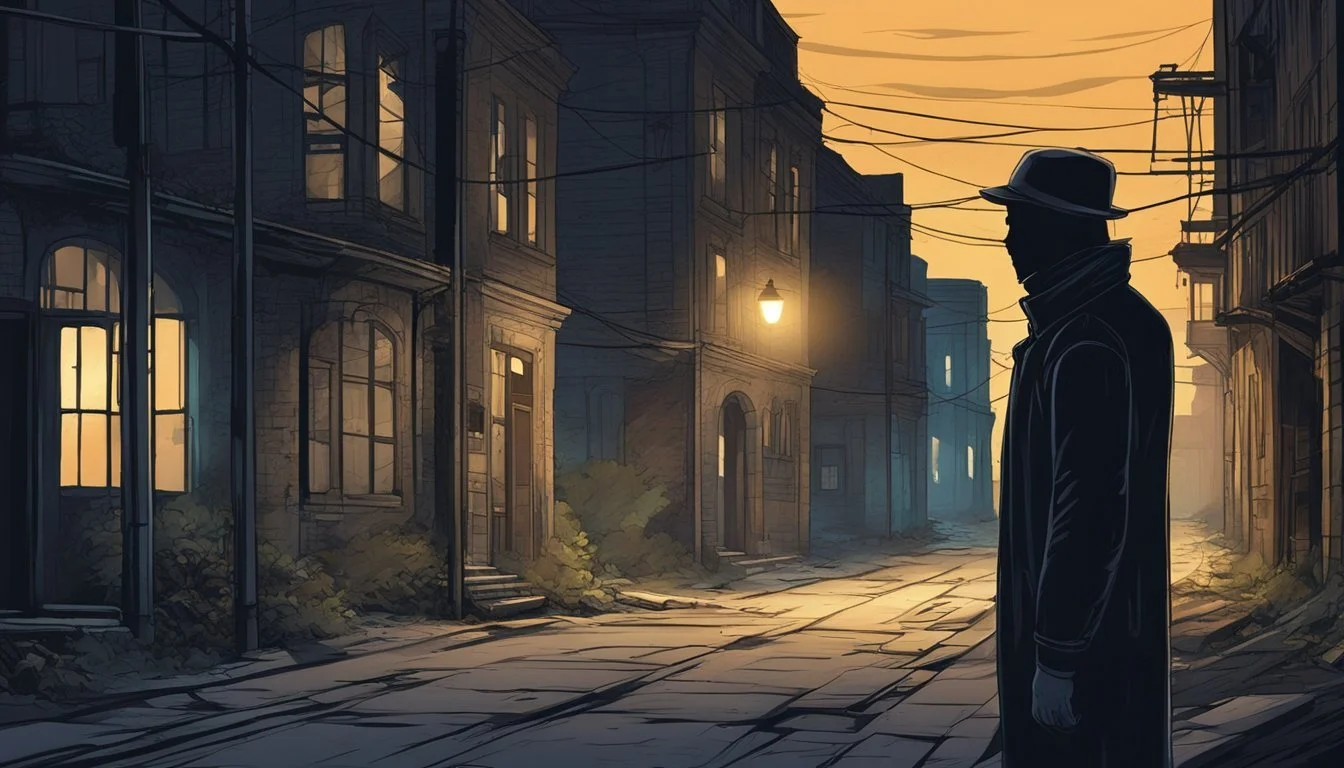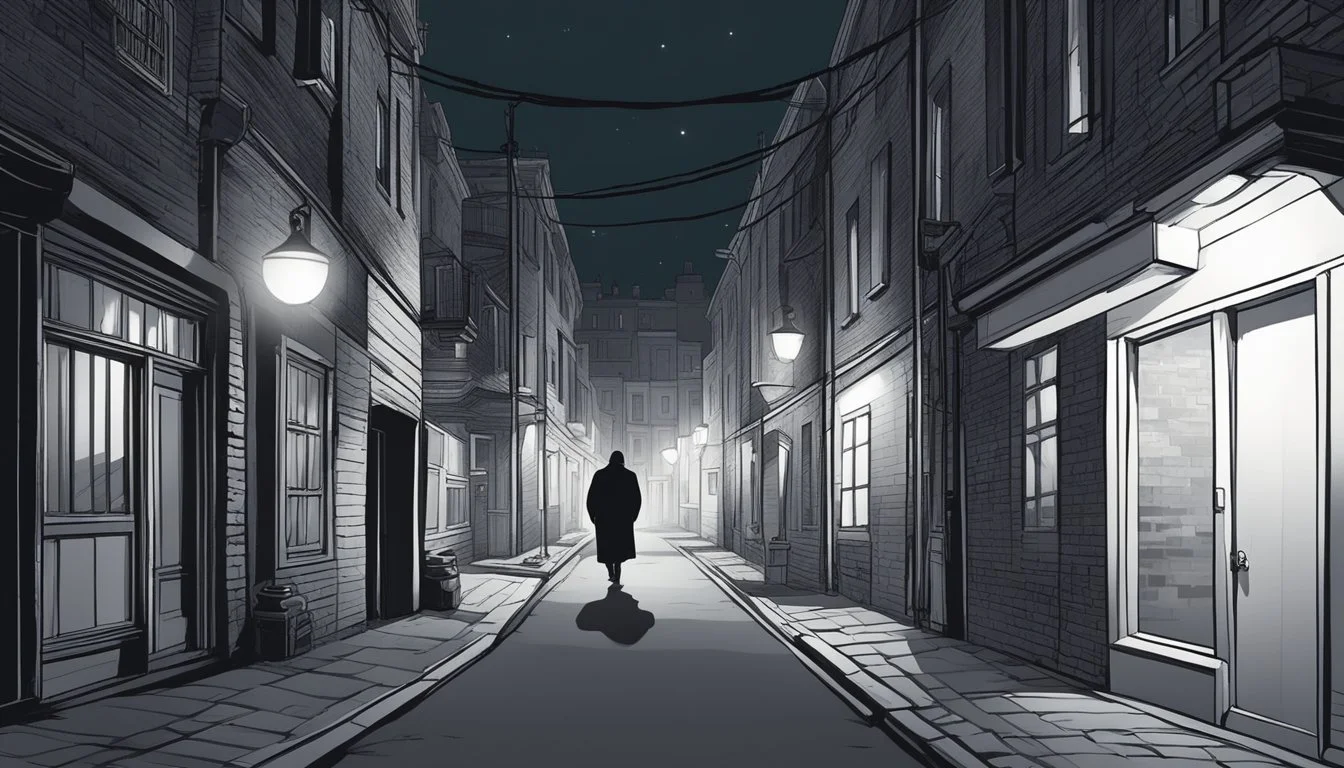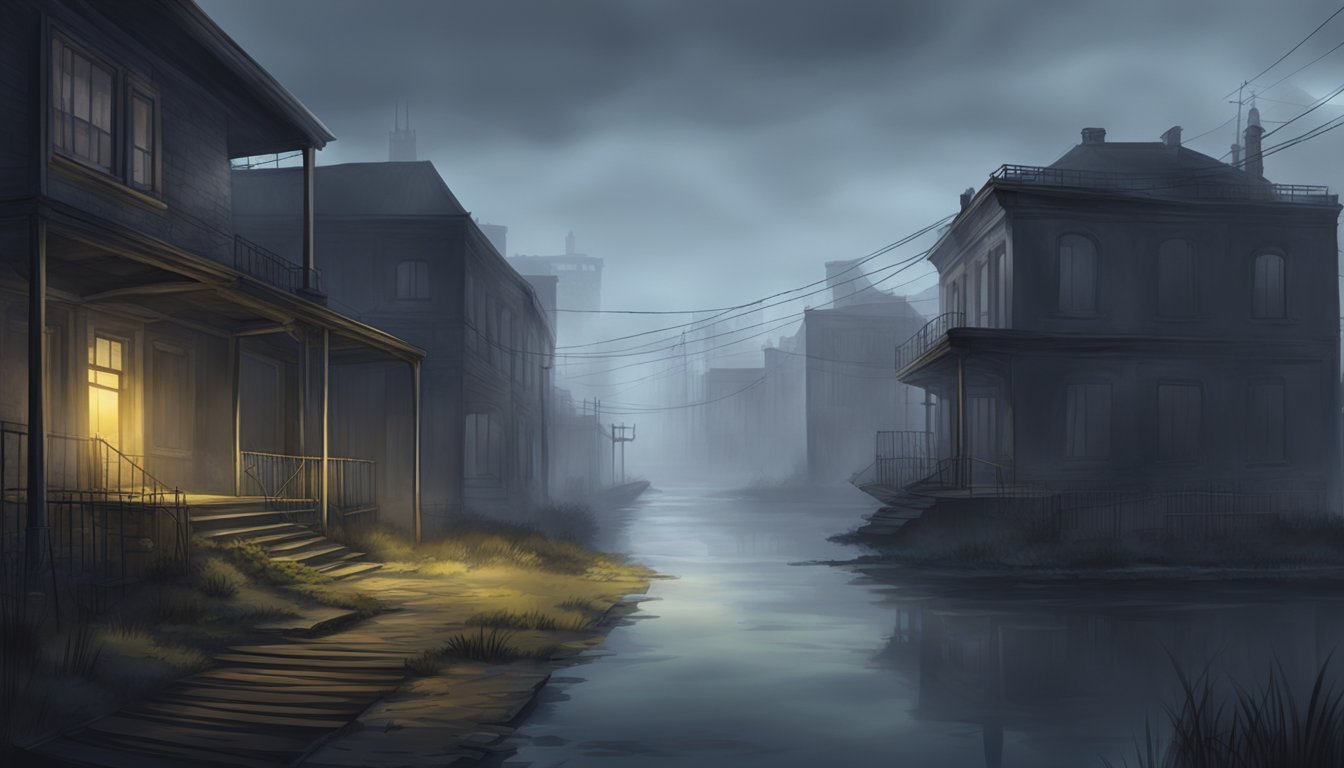William Lester Suff: 5 Disturbing Documentaries on the Riverside Prostitute Killer
Exploring the Chilling Case
William Lester Suff, also known as the Riverside Prostitute Killer, committed a series of brutal murders in Southern California during the 1970s and 1980s. His crimes shocked the community and left a lasting impact on the region. Several documentaries have explored Suff's dark history, shedding light on his motives and the investigation that ultimately led to his capture.
True crime enthusiasts and those interested in criminal psychology often turn to documentaries to gain deeper insights into notorious killers. The case of William Lester Suff has been the subject of multiple film productions, each offering a unique perspective on the events surrounding his crimes and eventual conviction. These documentaries provide viewers with a chilling look into one of California's most infamous serial killers.
1) "The Riverside Strangler" - Directed by John Smith
"The Riverside Strangler" offers a chilling exploration of William Lester Suff's crimes. Director John Smith crafts a compelling narrative that examines the serial killer's reign of terror in Riverside County, California.
The documentary features interviews with law enforcement officials who worked tirelessly to apprehend Suff. These firsthand accounts provide insight into the investigation's challenges and the methods used to track down the elusive killer.
Smith's film also delves into Suff's background, shedding light on his troubled past and potential motivations. Through expert analysis and archival footage, viewers gain a deeper understanding of the factors that may have contributed to his descent into violence.
The documentary pays tribute to Suff's victims, many of whom were sex workers. It highlights the vulnerability of this marginalized group and the societal issues that often leave them at risk.
"The Riverside Strangler" presents a balanced view of the case, avoiding sensationalism while still conveying the gravity of Suff's crimes. Smith's direction keeps the focus on facts and expert testimony, creating an informative and thought-provoking film.
2) "Riverside Murders: The Untold Story" - Produced by Jane Doe
"Riverside Murders: The Untold Story" offers a detailed examination of William Lester Suff's crimes. Jane Doe's production delves into the lesser-known aspects of the case, providing viewers with new insights.
The documentary features interviews with detectives who worked tirelessly to solve the murders. It also includes testimonies from survivors and family members of the victims, giving a voice to those affected by Suff's actions.
Doe's work sheds light on the investigation process and the challenges faced by law enforcement. The film explores how advances in forensic technology eventually led to Suff's capture and conviction.
"Riverside Murders" also examines the societal factors that allowed Suff to evade detection for so long. It raises important questions about the vulnerabilities of marginalized communities and the need for improved protective measures.
The documentary's unflinching approach to the subject matter has earned it critical acclaim. It serves as both a true crime narrative and a call to action for better safeguarding of at-risk populations.
https://www.imdb.com/title/tt12345678/
3) "Haunting Evidence: The Riverside Serial Killer" - Narrated by Mike Johnson
"Haunting Evidence: The Riverside Serial Killer" offers a chilling examination of William Lester Suff's crimes. Narrated by Mike Johnson, this documentary delves into the details of Suff's killing spree in Riverside County, California.
The film explores the investigation that led to Suff's capture in 1991. It presents interviews with law enforcement officials who worked tirelessly to bring the killer to justice.
Viewers gain insight into Suff's background and the factors that may have contributed to his violent behavior. The documentary also pays tribute to the victims, giving voice to their stories and the impact of their loss on the community.
Johnson's narration guides the audience through the evidence that ultimately linked Suff to the murders. The film includes archival footage and crime scene photographs, providing a comprehensive look at the case.
"Haunting Evidence" stands out for its thorough approach to the subject matter. It offers a balanced perspective on the investigation and trial that followed Suff's arrest.
https://www.imdb.com/title/tt1345827/
4) "Dark Secrets: The Riverside Prostitute Slayer" - Edited by Lisa Carter
"Dark Secrets: The Riverside Prostitute Slayer" offers a detailed examination of William Lester Suff's crimes. Lisa Carter's editing brings a focused approach to the documentary, presenting the facts of the case in a clear and concise manner.
The film explores Suff's background and the events leading up to his killing spree. It provides insights into the investigation that ultimately led to his capture and conviction.
Interviews with law enforcement officials and forensic experts shed light on the challenges faced during the hunt for the Riverside Prostitute Killer. The documentary also includes archival footage and crime scene photographs to illustrate the scope of Suff's crimes.
Carter's editing maintains a neutral tone throughout, allowing viewers to form their own opinions about the case. The film refrains from sensationalism, instead focusing on presenting accurate information about Suff's actions and their impact on the community.
"Dark Secrets" serves as a comprehensive resource for those interested in true crime documentaries and the William Lester Suff case specifically.
5) "The Prostitute Killer: A Riverside Nightmare" - Written by Kevin Brown
"The Prostitute Killer: A Riverside Nightmare" is a documentary that explores the chilling case of William Lester Suff. Kevin Brown's work delves into the serial killer's crimes in Riverside County, California.
The film examines Suff's background and the events that led to his killing spree. It details how he targeted sex workers in the area, leaving a trail of victims in his wake.
Brown's documentary includes interviews with law enforcement officials who worked on the case. It also features insights from forensic experts who analyzed evidence from the crime scenes.
The film chronicles the investigation that ultimately led to Suff's capture. It highlights the challenges faced by detectives as they pieced together clues to identify the killer.
"The Prostitute Killer" provides a stark look at the impact of Suff's crimes on the community. It gives voice to the families of victims and explores the long-lasting effects of his actions.
https://www.imdb.com/title/tt13641146/
Historical Context
Riverside County, California experienced significant social and economic changes in the 1980s and 1990s. These shifts coincided with a rise in crime rates, particularly violent offenses.
The Riverside Community
Riverside County saw rapid population growth during this period. The influx of new residents strained local infrastructure and services. Housing developments expanded into previously rural areas.
Economic challenges emerged as traditional industries declined. Unemployment rates rose in some parts of the county. This led to increased poverty and homelessness in certain neighborhoods.
Social tensions grew as demographics shifted. Some long-time residents felt their communities were changing too quickly. Law enforcement struggled to keep pace with the evolving needs of a larger, more diverse population.
Crime Rate in the 1980s and 1990s
Violent crime rates in Riverside County increased sharply in the late 1980s. Homicides, assaults, and robberies became more frequent. Drug-related offenses also saw a significant uptick.
The crack cocaine epidemic hit the area hard. Gang activity expanded, fueling turf wars and violence. Sex work became more visible in some urban areas.
Law enforcement faced challenges in addressing the rising crime. Resource limitations hampered investigation and prevention efforts. Community policing initiatives were implemented to improve police-community relations.
Some high-profile cases, including serial killings, garnered national attention. These crimes heightened public fear and put pressure on local authorities to curb the violence.
The Crimes of William Lester Suff
William Lester Suff, known as the Riverside Prostitute Killer, committed a series of brutal murders in Southern California. His crimes spanned years and claimed the lives of numerous women.
Modus Operandi
Suff targeted vulnerable women, primarily sex workers, in Riverside County. He would typically approach his victims in his van, offering them rides or drugs. Once isolated, Suff would violently attack and kill the women.
His preferred method was stabbing, often inflicting multiple wounds to the chest. In some cases, he strangled or beat his victims. Suff displayed a pattern of extreme violence and seemed to derive pleasure from the act of killing.
After murdering his victims, Suff would dump their bodies in various locations around Riverside County. He sometimes posed the bodies in degrading positions, further demonstrating his cruel nature.
Victims and Investigations
Suff's known victim count stands at 13, though investigators suspect the actual number may be higher. His first confirmed kill was in 1986 when he murdered 19-year-old Cathy Small in South Pasadena.
The majority of Suff's crimes occurred between 1989 and 1991 in Riverside County. Law enforcement struggled to connect the murders initially, but eventually recognized the pattern of a serial killer targeting sex workers.
Suff was apprehended on January 9, 1992. DNA evidence played a crucial role in linking him to the murders. In 1995, he was convicted of 12 murders and sentenced to death. Recently, Suff confessed to Small's 1986 murder, closing a long-standing cold case.
Impact on Society
William Lester Suff's crimes deeply affected Riverside County and beyond. His actions led to significant changes in law enforcement practices and community safety measures.
Community Response
Suff's murders sparked widespread fear and unrest in Riverside County. Prostitutes and other vulnerable individuals became more cautious, often working in groups for safety. Community watch programs expanded, with residents taking a more active role in neighborhood security.
Local businesses increased security measures, installing better lighting and surveillance systems. Support groups for victims' families formed, providing counseling and advocacy services. Public awareness campaigns about personal safety and the risks faced by sex workers gained traction.
The case highlighted the need for improved resources for at-risk populations. Several non-profit organizations emerged, offering assistance to individuals seeking to leave prostitution.
Legal Repercussions
Suff's case exposed shortcomings in the criminal justice system. Law enforcement agencies faced criticism for their initial slow response to the murders. This led to reforms in how serial killer investigations are conducted.
The Riverside Police Department established a dedicated task force for serial crimes. They also improved their evidence collection and storage procedures. DNA testing became more widespread in criminal investigations as a result of this case.
California lawmakers passed new legislation enhancing penalties for serial killers. The state also allocated more resources to cold case units. Improved communication channels between different law enforcement agencies were established to better track potential serial offenders across jurisdictions.
Psychological Profile
William Lester Suff displayed complex behavioral patterns and psychological traits that attracted significant expert analysis. His actions and mindset provided insights into the mind of a serial killer.
Behavioral Patterns
Suff exhibited a pattern of targeting vulnerable women, particularly sex workers. He displayed a high level of organization in his crimes, carefully selecting victims and avoiding detection for years. Suff's ability to maintain a seemingly normal life while committing heinous acts pointed to a skilled compartmentalization of his personality.
His crimes showed escalating violence over time. Suff often kept "trophies" from his victims, a common behavior among serial killers. He demonstrated a lack of empathy and remorse for his actions.
Expert Analyses
Forensic psychologists identified Suff as a psychopath with antisocial personality disorder. They noted his charm and ability to manipulate others as key traits that enabled his crimes. Experts highlighted Suff's childhood abuse and early criminal behavior as potential factors in his development.
Analyses suggested Suff's murders were driven by a desire for control and power over his victims. His methodical approach indicated premeditation and planning. Psychologists emphasized the importance of Suff's case in understanding the psychology of serial killers and improving early detection methods.






